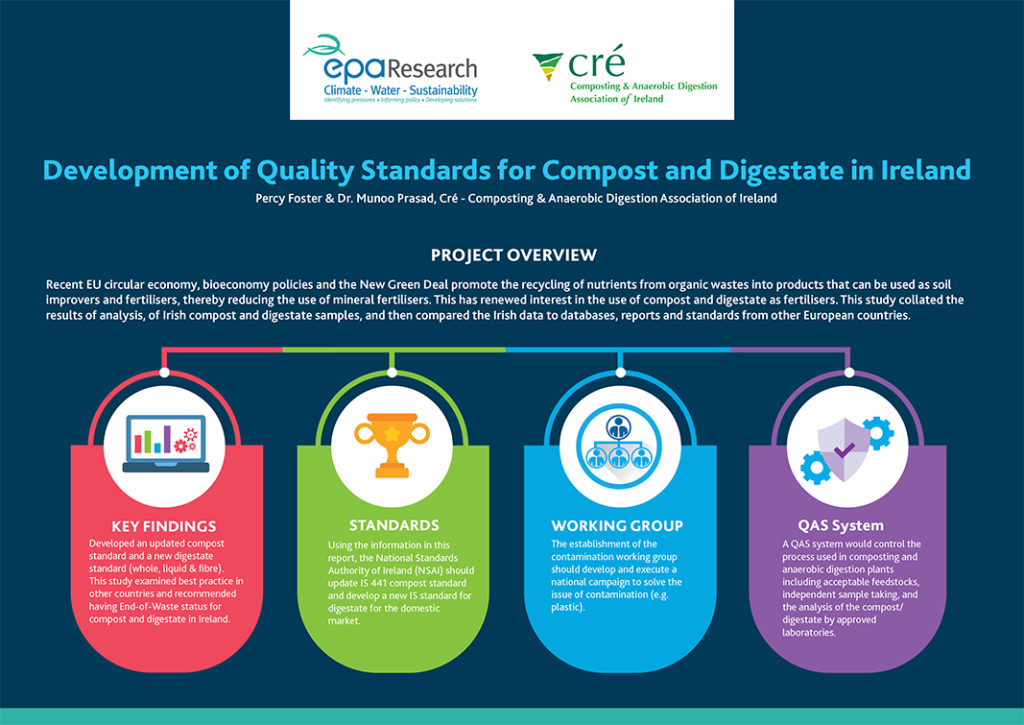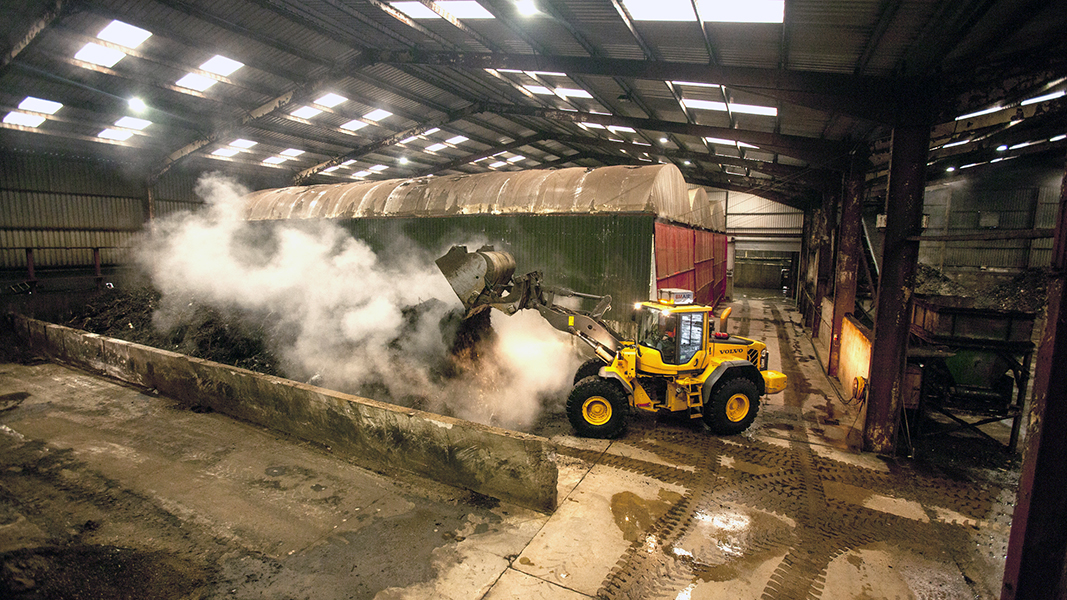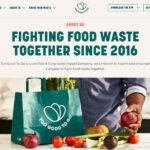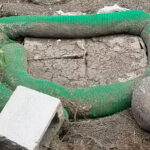Top: The Envirogrind in-vessel composting site, County Donegal, Ireland. Photo courtesy of Cré
Percy Foster and Dr. Munoo Prasad
Cré – Composting & Anaerobic Digestion Association of Ireland, announced in May 2021 the publication of a Research Report: Development of Quality Standards for Compost and Digestate in Ireland, funded by Ireland’s Environmental Protection Agency (EPA). EPA licenses and local authority waste facility permits granted to composting and anaerobic digestion (AD) plants include a quality standard as part of the license/permit conditions. However, the parameters and limit values vary considerably as five different types of standards are being used.
Currently, Ireland does not have national end-of-waste criteria for compost and digestate derived from source separated organic materials. The aim of the study, conducted by the authors of this article, was to develop a quality standard for digestate and an updated standard for compost, and recommend a strategy on how Ireland should implement national end-of-waste criteria for compost and digestate.
The standards development project was carried out as part of the EPA Research Program 2014–2020. It is primarily a desktop study that was supplemented with additional laboratory analysis where there was no Irish data available.
 Organics Recycling Policies
Organics Recycling Policies
Ireland published a new Waste Policy in September 2020, titled “Waste Action Plan for a Circular Economy” (Waste Action Plan, 2020). The policy aims to promote the segregation of food waste as outlined in Ireland’s Household Food Waste Regulations and the Commercial Food Waste Regulations. The successful implementation of the regulations will be enhanced by end-of-waste criteria being available for compost and digestate. End-of-waste status would drive the need for high quality feedstocks to produce a compost/digestate that meets end-of-waste criteria.
On a European Union (EU) level, separate collection of biowaste will become mandatory by 2023 under the new Circular Economy legislative package. Recent EU circular economy and bioeconomy policies and the New Green Deal promote recycling of nutrients from organic wastes into products that can be used as soil improvers and fertilizers, thereby reducing the use of mineral fertilizers. This has renewed interest in use of compost and digestate as fertilizers. The mode by which waste-derived compost and digestate is recycled into fertilizer products is set out Article 28 of the European Union (Waste Directive) Regulations 2011-2020 and Article 19 of the EU Fertilizer Products Regulation (EU) 2019/1009.
Currently, Ireland relies on varying quality standards being used by composting and anaerobic digestion plants. Overall, the system needs a uniform set of quality standards for compost and digestate, which would replace existing standards being applied and which also would recommend a strategy on how Ireland should use these new standards in order to create nationally recognized standards which could be used as an end-of-waste criterion, following the guidance in the new EPA study.
Proposed Standards
This study examined best practice in other countries and options for having end-of-waste criteria, recommending an approach that could be undertaken in Ireland. The report is based on research carried out from February 2019 to June 2020.
The study collated results from the analysis of Irish compost and digestate samples, and then compared the Irish data to databases, reports and standards from other European countries. The Joint Research Centre (JRC) report, End-of-waste criteria for biodegradable waste subjected to biological treatment (compost & digestate) (Saveyn and Eder, 2014) and the new EU Fertilizer Product Regulation 2019/1009 (EU, 2019) were considered in this study. From this collation and comparison process, an updated compost standard and a new digestate standard (whole, liquid & fiber) were developed (Table 1).
In addition to the mandatory limits, we recommend that the value of a number of parameters such as nutrients should be declared by all plants in order for the end user to make informed decisions on the best way to use it (Table 2).
 Key Insights And Recommendations
Key Insights And Recommendations
Feedstocks
- Establish a contamination working group to develop and execute a national campaign to solve the issue of feedstock contamination. This is because the authors determined that the greatest risk to achieving the standards is the presence of contamination in the feedstock.
Monitoring of Process & Quality Assurance
- The recommended approach to be taken in Ireland to define end-of-waste criteria for compost/digestate is by either national fertilizer regulation or biowaste ordinance legislation. The authors are of the opinion it should include the requirement for compost or anaerobic digestion plants that propose to produce an end-of-waste product be compliant with a Quality Assurance Scheme (QAS) that is monitored by a quality assurance organization.
- A QAS system would monitor the process used in composting and anaerobic digestion plants including acceptable feedstocks, independent sample taking, and the analysis of the compost/digestate by approved laboratories. A QAS system may not be required in a plant that has authorizations in place that regulate these critical control points. In addition, a Quality Assurance organization would evaluate the results independently and award a QAS certificate to successful plants.
Standards
- Using the information in this report, the National Standards Authority of Ireland (NSAI) should update its IS 441 compost standard and develop a new IS standard for digestate placed on the domestic market.
- A review of the impurity standard and limit values should be done in 2025. This should include the latest scientific knowledge on plastics limits, and data on contamination levels in biowaste, compost and digestate.
- The findings of this study can be used in an application to the EPA by industry for national end-of-waste standards for compost and digestate.
- If a compost or digestate product that has achieved end-of-waste quality for use in Ireland is exported to another country, the authorities in the receiving country might take a different view on its Irish end-of-waste status. The recommended approach of the authors would be to have agreements in place with other authorities in Europe, which would recognize the end-of-waste status for compost and digestate products granted in other jurisdictions. In addition, post July 2022, products that conform with the EU Fertilizers Regulations would facilitate trade between EU countries.
Percy Foster is the CEO for Cré-Composting and Anaerobic Digestion Association of Ireland from 2006 to the present. He has coordinated and managed the activities of the association, representing the composting and anaerobic digestion industry at Government and European levels. Percy is a former board member of the European Compost Network.
Munoo Prasad, PhD has been working in compost research for over 35 years both in New Zealand and Ireland. He is a founding member of Cré. As a result of his research work in conjunction with Kinsealy Research Centre, Dublin, a state of the art composting facility was started by Bord na Mona at Kilberry with a capacity of over 50,000 metric tons of primarily green waste.












